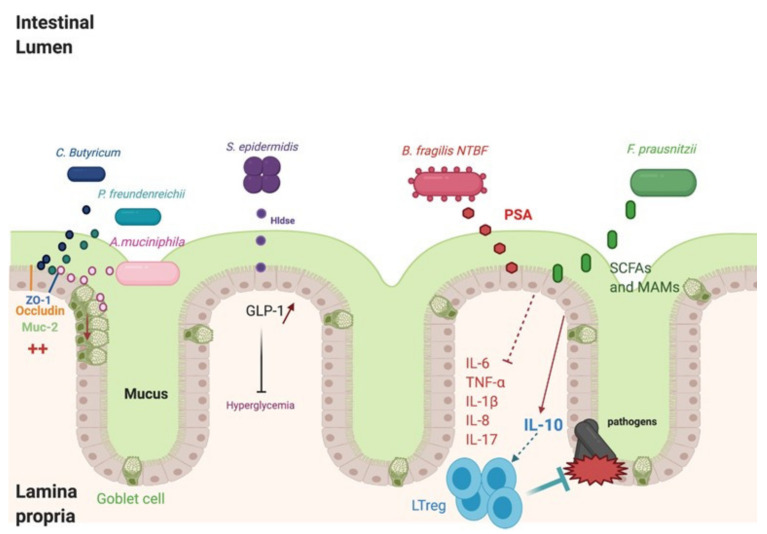Figure 1.
Impact of next-generation probiotics (NGPs) on intestinal epithelium. NGPs (non-toxinogenic Bacteroides fragilis (NTBF), Faecalibacterium prausnitzii, Akkermancia muciniphila, Clostridium Butyricum, Propionobacterium freundenreichii, Staphylococcus epidermidis) produce different metabolites impacting the health of the gut and other organs. The derived metabolites, polysaccharide A (PSA) of NTBF strain and short-chain fatty acids (SCFAs) and microbial ant-inflammatory molecules (MAMs) of Faecalibacterium prausnitzii, inhibit inflammatory cytokines and increase interleukin-10 (IL-10). Clostridium Butyricum, Propionobacterium freundenreichii, and Akkermancia muciniphila act by increasing zonula occludens-1 (Z0-1) and occludin expression improving the intestinal barrier. A. muciniphila restores the number of Goblet cells, reversing intestinal mucosa damage and increasing the expression of mucin-2 (MUC-2). Staphylococcus epidermidis Hldse can induce glucagon-like peptide-1 (GLP-1) expression in epithelial cells, decreasing hyperglycemia. Figure created with BioRender.com (accessed on 19 May 2020).

